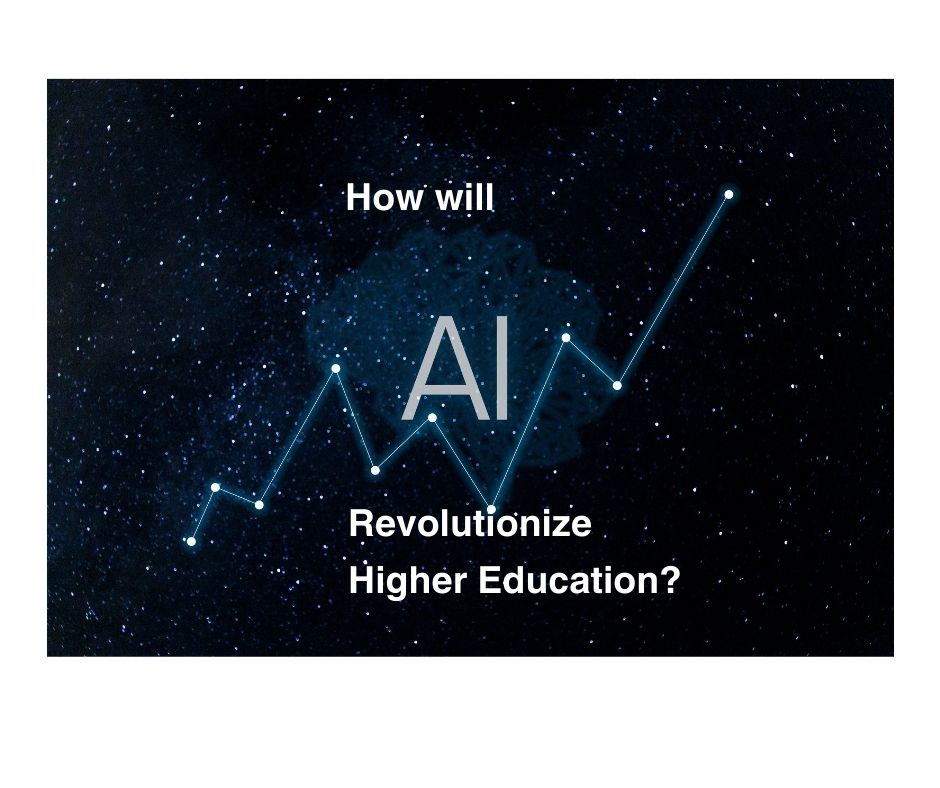January 31, 2024 | 3 minute read
How will AI Revolutionize Higher Education?

By David Kent, President, David Kent Consulting
Artificial Intelligence (AI) is poised to usher in a profound transformation in the landscape of higher education, promising to revolutionize the way we teach, learn, and administer academic institutions. As this cutting-edge technology continues to evolve, its impact on higher education becomes increasingly significant.
One of the most compelling aspects of AI in higher education is personalized learning. AI systems can analyze vast amounts of data to understand individual student learning patterns, preferences, and performance. By tailoring educational content to the unique needs of each student, AI enhances the learning experience, ensuring that education is not a one-size-fits-all model but a personalized journey that fosters deeper understanding and engagement.
Administrative processes within higher education are also ripe for transformation through AI. Tasks such as admissions management, grading, and data analysis can be automated, freeing up valuable time for educators and administrators. This newfound efficiency allows institutions to redirect resources towards more strategic initiatives, improving the overall quality of education and the student experience.
AI’s predictive analytics capabilities are reshaping how educators identify and address student needs. By analyzing data patterns, AI can predict which students are at risk of falling behind or facing challenges. Early identification enables timely interventions, allowing educators to provide targeted support and resources to help struggling students, ultimately improving retention rates and student success.
The collaborative nature of learning is evolving with AI integration. Intelligent tutoring systems and virtual collaborative platforms leverage AI to facilitate group interactions and peer-to-peer learning experiences. These technologies transcend geographical limitations, allowing students to engage in dynamic, AI-facilitated discussions and collaborative projects, enriching their educational journey.
However, the implementation of AI in higher education is not without its challenges. One significant concern is the ethical use of AI, including issues of bias, privacy, and transparency. Ensuring that AI algorithms are fair and unbiased requires careful scrutiny and ongoing monitoring to prevent reinforcing existing inequalities.
Another challenge lies in upskilling faculty and staff to effectively integrate and utilize AI tools. Training programs must be comprehensive to empower educators to leverage AI in their teaching practices. A lack of proficiency in AI technologies could hinder the successful implementation of these tools, emphasizing the need for ongoing professional development.
Moreover, the financial investment required for AI implementation poses a challenge for many institutions. While the long-term benefits may be significant, the initial costs of acquiring and implementing AI technologies can be substantial. Institutions must carefully weigh the potential returns against budgetary constraints.
In conclusion, the opportunities presented by AI in higher education are vast, promising enhanced personalized learning, streamlined administration, and global collaboration. However, these opportunities come hand in hand with challenges such as ethical considerations, the need for faculty upskilling, and financial investments. Navigating this landscape requires a thoughtful and strategic approach to ensure that AI contributes positively to the educational experience, fostering innovation while addressing potential hurdles responsibly.




